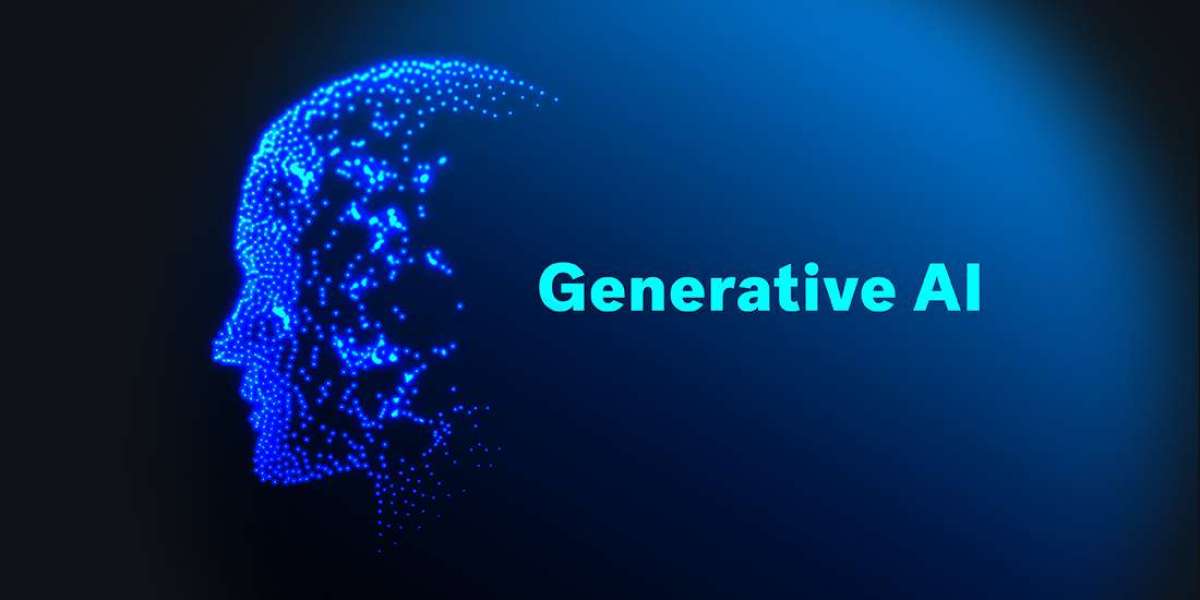Generative AI is revolutionizing various sectors by creating new, synthetic content from existing data. While foundational knowledge of Generative AI is essential, diving into advanced topics can further enhance your understanding and capabilities in this exciting field. If you’re considering enrolling in a Generative AI course In Hyderabad, it’s crucial to explore beyond the basics to fully grasp the advanced concepts that drive innovation. This article will guide you through some of the advanced topics that you should be aware of in a specialized Generative AI course.
Advanced Generative Models
Generative AI encompasses various models, each with its unique approach and applications. Understanding advanced models can significantly broaden your expertise.
1. Generative Adversarial Networks (GANs)
Generative Adversarial Networks (GANs) are among the most influential advancements in Generative AI. GANs consist of two neural networks: a generator and a discriminator, which are trained simultaneously through adversarial processes. The generator creates new data samples, while the discriminator evaluates them. The interplay between these networks leads to the generation of high-quality, realistic data.
Advanced topics in GANs include variations like Conditional GANs (cGANs), which generate data based on specific conditions or labels, and StyleGANs, which are known for creating highly realistic and customizable images. Understanding these variations can help you apply GANs to more complex and specific problems.
2. Variational Autoencoders (VAEs)
Variational Autoencoders (VAEs) are another fundamental model in generative tasks. VAEs learn to encode data into a latent space and then decode it to reconstruct the original data. This process allows for generating new samples that share similar characteristics with the original data.
Advanced topics in VAEs include the exploration of hierarchical VAEs, which model data at multiple levels of abstraction, and β-VAE, which introduces a hyperparameter to control the trade-off between reconstruction accuracy and latent space disentanglement. These variations can significantly impact the quality and usability of generated data.
3. Diffusion Models
Diffusion models are a newer class of generative models that have gained attention for their ability to generate high-quality images. These models work by gradually adding noise to data and then learning to reverse this process to recover the original data. The key advantage of diffusion models is their capability to produce fine-grained, detailed samples.
Advanced topics within diffusion models include techniques for improving their efficiency and scaling, as well as applications beyond image generation, such as text and audio synthesis. Mastery of diffusion models can position you at the cutting edge of generative AI research and applications.
Techniques for Training and Optimization
Advanced Generative AI also involves sophisticated techniques for training and optimizing models. These techniques are crucial for improving the performance and reliability of generative systems.
1. Meta-Learning
Meta-learning, or "learning to learn," focuses on creating models that can adapt to new tasks or data with minimal training. In the context of generative AI, meta-learning techniques can be applied to enhance the efficiency of training generative models. This involves designing models that can quickly learn and generalize from a few examples, which is particularly useful for tasks with limited data.
2. Transfer Learning
Transfer learning involves using a pre-trained model on a related task and fine-tuning it for a new, but similar task. This approach can significantly reduce training time and improve performance. In generative AI, transfer learning can be applied to leverage pre-trained generative models for specific applications, such as generating domain-specific content or enhancing model performance on specialized datasets.
3. Few-Shot and Zero-Shot Learning
Few-shot and zero-shot learning are advanced techniques that enable models to perform tasks with minimal or no task-specific training data. Few-shot learning involves training a model with a few examples of a new task, while zero-shot learning allows the model to generalize to tasks it has never seen before based on its understanding of related tasks. These techniques can be particularly useful in generative AI for creating content in new domains or under limited data conditions.
Applications and Case Studies
Understanding advanced topics in generative AI also involves exploring how these techniques are applied in real-world scenarios. A Generative AI course in Hyderabad often includes case studies that highlight innovative applications of these technologies.
1. Art and Creative Industries
Generative AI has been transformative in art and creative industries, enabling the creation of new styles, compositions, and artistic expressions. Advanced generative models, such as StyleGANs, have been used to create realistic portraits and artistic variations, pushing the boundaries of traditional art forms.
2. Healthcare and Drug Discovery
In healthcare, generative models are used to synthesize medical images, create new drug compounds, and simulate biological processes. Advanced models, including VAEs and diffusion models, help researchers generate realistic medical data for training and validation purposes, enhancing the accuracy and reliability of diagnostic tools.
3. Gaming and Virtual Environments
Generative AI plays a significant role in creating immersive gaming experiences and virtual environments. By generating realistic textures, landscapes, and characters, these models enhance the quality and depth of virtual worlds. Advanced generative techniques enable developers to create complex and dynamic gaming environments that adapt to player interactions.
Conclusion:
Exploring advanced topics in Generative AI can provide you with a deeper understanding of the field and enhance your ability to apply these technologies to complex problems. A Generative AI course in Hyderabad can offer you a structured pathway to mastering these advanced concepts, from sophisticated models like GANs and VAEs to cutting-edge techniques in training and optimization.
By delving into these advanced topics, you not only broaden your technical expertise but also position yourself at the forefront of innovation in generative technologies. Whether you’re interested in creative applications, healthcare advancements, or immersive gaming experiences, mastering advanced Generative AI concepts can unlock new opportunities and drive significant advancements in your field. Investing in a specialized course is a strategic step towards achieving excellence and staying competitive in the rapidly evolving landscape of AI.








